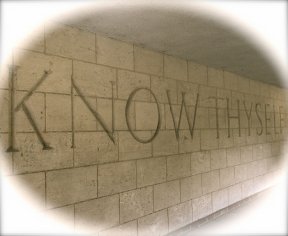
 AVE YOU EVER HEARD someone say, “I’m a basically good person”? I hear it all the time. In fact, people probably tell me that exact thing (or something similar) a few times a week. Other times, it is a family member at a funeral who describes the deceased as a “basically good person.” These claims are made with such frequency that they have caused me to think a great deal about them. Would you consider it an overreaction if I suggested that such a way of thinking is the work of the devil?
AVE YOU EVER HEARD someone say, “I’m a basically good person”? I hear it all the time. In fact, people probably tell me that exact thing (or something similar) a few times a week. Other times, it is a family member at a funeral who describes the deceased as a “basically good person.” These claims are made with such frequency that they have caused me to think a great deal about them. Would you consider it an overreaction if I suggested that such a way of thinking is the work of the devil?
The statement, itself, is actually true. We are “basically good,” as the story of creation in Genesis teaches us (Genesis 1:31). The mindset behind the statement, however, is what I find unsettling. When someone says, “I’m a basically good person,” it is a sort of gentle admission of imperfection coupled with an aggressive form of sloth. The unspoken premise underlying such a statement is that one need not bother to improve. The improvement of our lives, though—indeed, the changing of our hearts—is central to the Gospel message, which eschews complacency.
The greatest saints are always those who are most aware that they are great sinners. Read the spiritual works of Teresa of Avila. Crack open the autobiography of Ignatius of Loyola. Get to know the sermons of Jean-Marie Vianney. Dust of your copy of the Little Flower’s Story of A Soul. Remember that Blessed John Paul II would often confess daily. When St. Paul wrote about “sinners, of whom I am the worst,” he was not bloviating with false humility. These saints were all keenly aware of their powerlessness over concupiscence and their need for redemption.
This can be a great litmus test for us: if we can’t think of what we should confess, we probably need to spend more time in prayer and self-reflection. This is the practical wisdom of the Delphic oracle, “Know thyself”; knowledge of self is a pre-requisite for knowledge of God. Corollary to that, it is always and everywhere true that the less aware we are of our sinfulness the farther we are from sanctity.
Saint John said it this way: “If we say, ‘We are free of the guilt of sin,’ we deceive ourselves; the truth is not to be found in us” (1 John 1:8). In this modern age we so often speak not of sin, but of “mistakes that were made.” Rather than accuse ourselves of guilt, we prefer simply to admit that we’re not perfect. We view ourselves not as poor sinners, but as “basically good” people.
I propose that the enemy is pleased with these positions.

